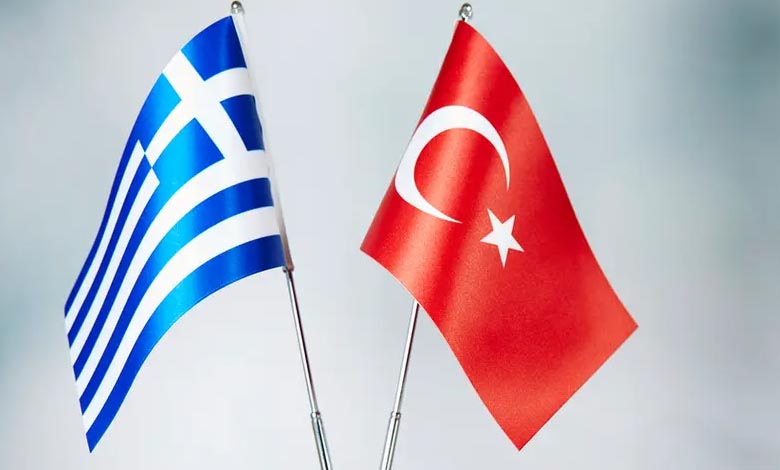Turkey accuses Greece of provocation… Why?

The Turkish Foreign Ministry considered yesterday the call of the Greek Foreign Minister Níkos Déndias to Ankara to recognize the invalidity of its agreement with the former Libyan Government of National Accord to delineate the maritime borders as “provocative”.
Previously, Turkey and Greece had nearly fought over water in the eastern Mediterranean.
The Turkish Foreign Ministry said in a statement: “The Greek foreign minister’s provocative speech is not in harmony with the neighborly relations and the talks that started between the two countries”, it said, adding: “Greece continues its provocative actions in the Aegean and Mediterranean”.
It added: “Déndias’ statements are a new proof of Greece’s preference for tension over resolving differences through dialog”, noting that “Ankara refuses to consider Greece as the will of our country to defend its rights as a threat to it, and the real threat in the region is the result of Greece’s unilateral actions that cause escalation of tension”.
Turkey’s moves to explore for gas in the eastern Mediterranean have drawn strong criticism from Greece, Cyprus and Egypt, especially after Ankara signed an agreement to delineate the maritime border with the Libyan Government of National Accord at the end of last year.
On November 27, 2019, Turkish President Recep Tayyip Erdogan and the Chairman of the Presidential Council of the former Libyan Government of National Accord, Fayez al-Sarraj, signed two memorandums of understanding on security cooperation and maritime zones, both of which were later ratified by the Turkish parliament.
This drew condemnation from the Libyan interim government and parliament in the east of the country for perceived encroachment on the powers of the GNA, and drew condemnation from Egypt, Cyprus, and Greece for what they considered an infringement of their maritime rights and the illegal presence of foreign forces in Libya.











